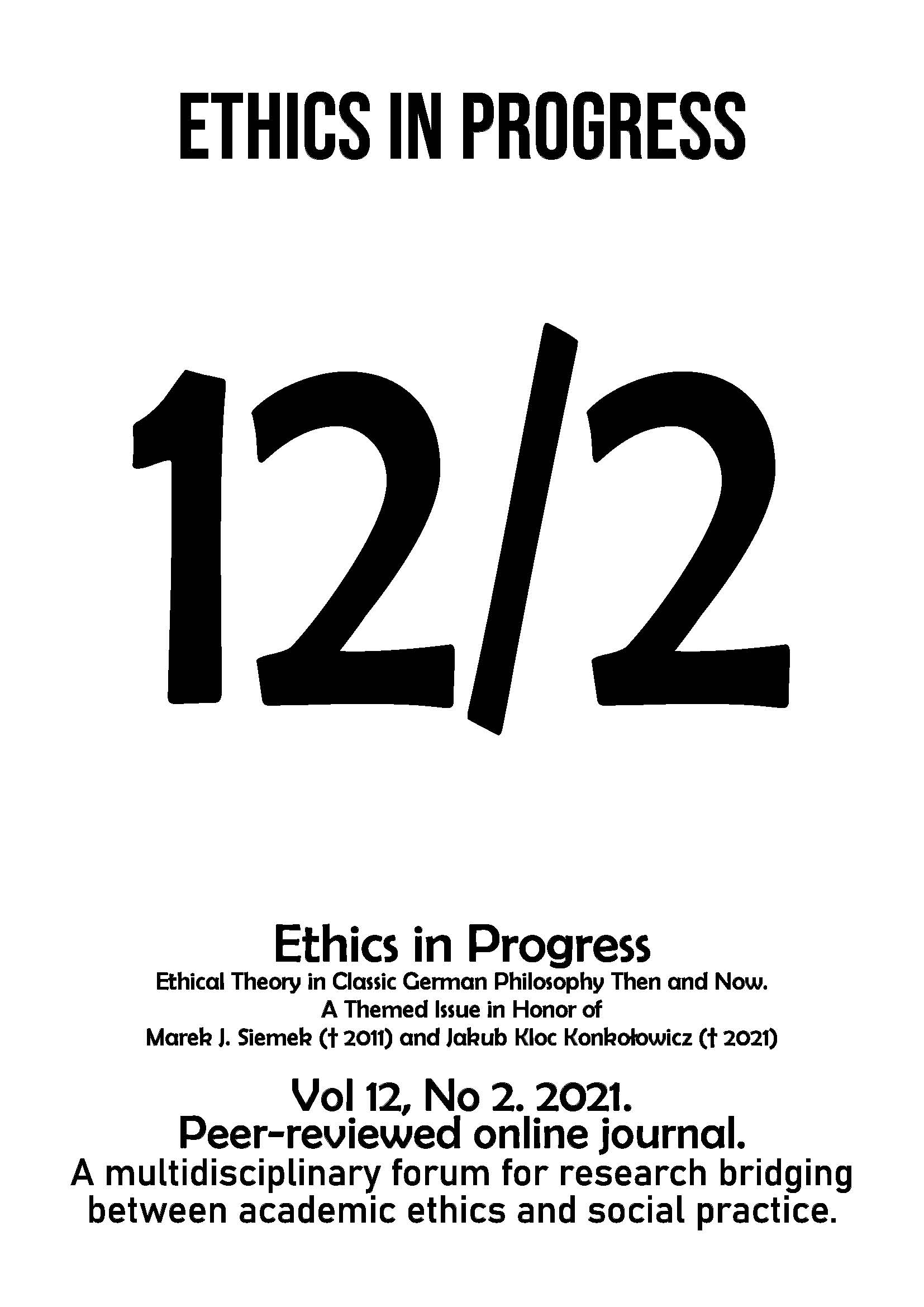Striving for Freedom. Some Notes about Fichte’s Idealism
Striving for Freedom. Some Notes about Fichte’s Idealism
Author(s): Elena Paola Carola AlessiatoSubject(s): History of Philosophy, Philosophical Traditions
Published by: Uniwersytet Adama Mickiewicza
Keywords: Fichte; critical idealism; striving for freedom; Anstoss; activity; Tathandlung
Summary/Abstract: Moving from Fichte’s assumption that “the essence of the I is its activity”, this paper tries to analyze the meaning and implications of the idea of “activity” [Tathandlung] in order to explicate the peculiarities of Fichte’s critical, transcendental, and moral idealism. Fichte’s idea of activity will be examined with reference to such basic concepts as collision [Anstoss], interaction [Wechselwirkung], inter-determination [Wechselbestimmung], and striving [Streben]. However, it is freedom which frames and connects the core components of Fichte’s thinking and sets up the goal of his philosophy of action. What freedom accounts for, can be identified both at the transcendental level, in the internal dynamic of infinity and finitude constituting the subjectivity of the I, and at the moral and social levels of Fichte’s thought, as the goal of the human action in history and in the society. In assuming the unitary character of Fichte’s philosophical system, concluding remarks are developed concerning the moral meaning of the act of striving for freedom and, conversely, the immorality of attitudes and feelings such as fear, resignation, and fatigue.
Journal: Ethics in Progress
- Issue Year: 12/2021
- Issue No: 2
- Page Range: 46-60
- Page Count: 15
- Language: English

